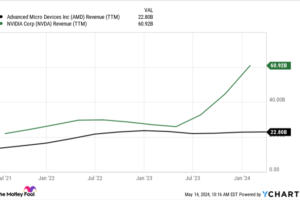This article is reprinted by permission from NerdWallet.
After a year of little to no travel, you’re probably ready to get back out and explore the world once it’s safe. But just because you’ve gotten your vaccine or coronavirus case rates are dropping doesn’t necessarily mean everything is returning to normal. In fact, the travel world is still far from it.
If you haven’t traveled in a while, you’ll almost certainly discover a “new normal.” Some of the changes are beneficial to you — like easier paths to airline and hotel status and more customer-friendly cancellation policies. You might find other changes add time to your trip planning, like mandatory reservations and testing requirements.
Regardless, major shifts are happening in the travel industry, and here are the main factors likely to affect your next trip.
1. Many change and cancellation fees have been eliminated
It’s easy to feel hesitant booking a trip not knowing if flights will be canceled or destinations will change their COVID-19 regulations, especially if you’ve been burned by hefty change and cancellation fees in the past.
Over the past year, many airlines eliminated change fees completely, and it’s now fairly common to find hotels that waive fees for reservations canceled at least 24 hours in advance of arrival. A few cruise lines will even give you a full cash refund if you can’t go on your trip for a coronavirus-related reason.
2. Travel insurance may not cover everything you thought it did
Given how unpredictable the travel world is right now with schedule, rule and policy changes, you might be inclined to purchase travel insurance to provide yourself with some financial protection on the nonrefundable portions of your trip. Just be clear about what your travel insurance covers. Even pre-pandemic, most forms of travel insurance would cover illness-related cancellations (such as actually getting sick), but would not cover disinclination to travel (such as backing out because you might get sick).
Also see: Covid became a pandemic one year ago — Normalcy is coming back
That is, unless you purchase cancel for any reason coverage, which is an add-on cost. Sometimes travel insurance is worth it, but sometimes it is not. Be sure you understand what you’re paying for.
3. More restaurants and venues require reservations
Most travelers are accustomed to reserving hotel rooms or theater tickets in advance. But these days, plan to make reservations for theme park tickets and even restaurants, too.
For example, when Walt Disney World DIS, -0.53% reopened during the pandemic, reservations became mandatory. At one point, a Nevada law actually required you to have a reservation to dine at restaurants — no walk-ins were allowed. These rules are likely to continue to evolve as the travel industry further adjusts to COVID-era travel.
4. Buffets, club lounges and other common spaces have been cut
Goodbye, all-you-can-eat hotel breakfast buffets. Many hotels have transitioned to grab-and-go breakfasts as part of their efforts to safely serve guests. Many club lounges, frequently offered as an amenity for customers with hotel elite status, and airport lounges are also still closed. Even those complimentary soaps are going away at some hotels. Temper your expectations on the service and amenities you’ll receive ahead of your next trip.
5. You’ll need to add some new items to your packing list
You likely haven’t flexed your packing muscle in a while, yet next time you travel, packing will require even more effort. Besides the obvious items like face masks and hand sanitizer, there are a few more additions to your COVID-era travel packing list to consider, including a contactless credit card, a water bottle and, yes, maybe even your own toilet paper.
6. You might still have status with airline and hotel loyalty programs
Ah, the aggravating feeling of finally reaching airline status in December 2019, only to never take a single flight in 2020. Happily, your status might not actually be lost.
Many travel rewards programs have changed elite status rules in consumers’ favor and have extended the duration of how long customers hold status before needing to requalify. Others have reduced qualification requirements, and some programs have done both — extended benefits and reduced requalification requirements.
See: American Airlines raises $10 billion by betting on vacation splurges
Before you give up hope that you never actually got to take advantage of your elite status, check whether it was extended (or at least, how far off you are from earning or maintaining it).
7. You’ll need a negative COVID-19 test to return to the U.S.
International travel is still difficult at the moment, and it’s unclear when that will change. Many countries are not accepting foreign tourists. To enter the U.S. from another country — even if you’re a U.S. citizen — you’ll need to show proof of a negative COVID-19 test or recovery before boarding your flight.
If you do test positive, you’ll have to stay abroad, which could lead to unanticipated travel expenses as you scramble for last-minute lodging, not to mention possible medical expenses (private health insurance may not cover expenses incurred abroad).
8. Some U.S. cities still have domestic travel restrictions
Even domestic travel can be tricky. Some cities, counties and states have travel restrictions, and they can vary dramatically from neighboring areas, adding to confusion. You might be flying into Los Angeles International Airport, but travelers to Los Angeles County from outside of California need to self-quarantine for 10 days after arrival. Yet neighboring Orange County (and John Wayne Airport) doesn’t have that rule. Be sure you check and plan ahead for your specific destination.
Read: Norwegian Cruise stock rallies after signs of ‘robust’ pent-up demand for future cruises
9. Many spots still aren’t open, or operating like they used to
Even without outright travel restrictions, you may find many places just aren’t operating like they used to. Some regions have other rules that could impact your experience, such as indoor dining bans.

No hugs from Mickey: Tourists at DisneySea in Japan, which is operating at limited capacity.
AFP via Getty Images
Sometimes, changes are up to the businesses themselves. For example, Cirque du Soleil is a staple of Las Vegas, but the company chose to temporarily suspend shows. And don’t expect to get a hug from Mickey on any upcoming Disney trips. Walt Disney World’s character experiences have been amended for social distancing, meaning characters only wave to you from terraces, parade floats or behind other barricades.
10. You may need a vaccine passport
While many countries, including the U.S., require proof of a negative COVID-19 test to enter, a vaccine passport could take things a step further by digitally documenting proof that you’ve received a coronavirus vaccine in a widely accepted format.
Such passports are still in the early stages; President Joe Biden issued an executive order in January 2021 simply asking government agencies to “assess the feasibility” of them.
Read more: COVID vaccine passports may be coming — what’s the downside?
But vaccine passports are already popping up in some capacity, and their use is only likely to grow. The International Air Transport Association has developed an app called the IATA Travel Pass capable of showing whether passengers meet testing or vaccination requirements.
Many countries already require proof of vaccination, such as for yellow fever, to enter. As coronavirus vaccines become more widely available, be prepared for the possibility that you may be required to be vaccinated to enter certain countries.
The bottom line
It’s certainly encouraging to see coronavirus cases dropping, but that doesn’t mean travel is going back to 2019’s version of normal. Some changes — like consumer-friendly cancellation policies — are clearly for the better, but some might be for the worse (so long, buffets). Either way, whether you’re planning travel for this spring, summer or further into the future, expect a new normal.
More From NerdWallet
Sally French writes for NerdWallet. Email: [email protected]. Twitter: @SAFmedia.















Add Comment